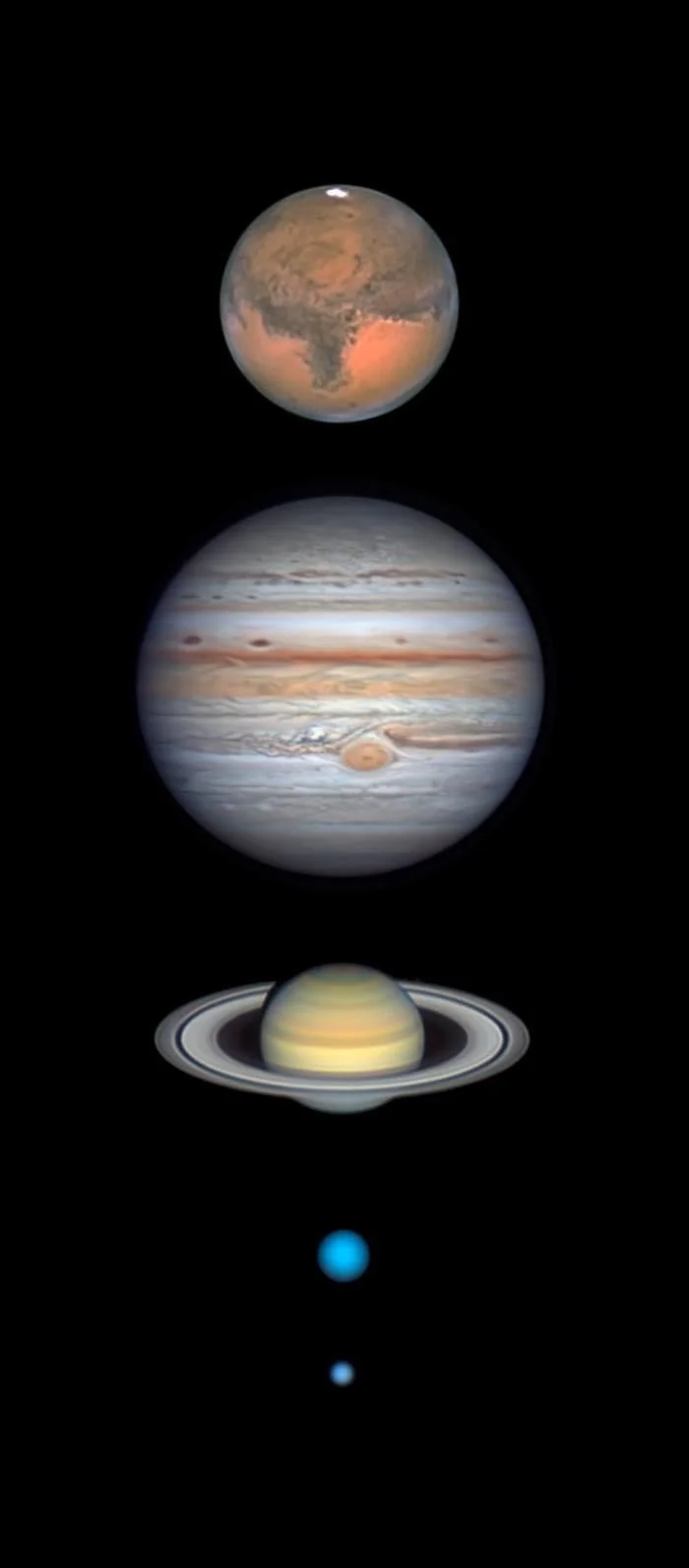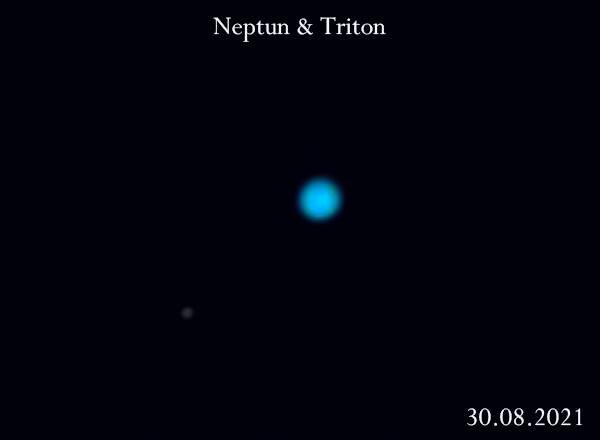
AAPOD2 Image Archives
neptune
Featured Astrophotographer on AAPOD2
Neptune and Triton
Image Description and Details : Neptune and Triton October 08th, 2022
Under good seeing conditions.
Some bright features in the southern hemisphere can be seen.
The orientation is confirmed by the position of Triton.
The false color image is only for aesthetic reasons.
C14 Edge HD, Fornax52 mount,ASI 290 mono, Baader R+IR610nm
Agerola-Amalfitan Coast-Italy
Copyright: Luigi Morrone
planetary tour
Grand tour of the outer planets from my backyard. Shot over the last 12 months with the fabulous Astro Physics 10" f/14.5 Mak-cass telescope and the QHY5III-462C color cmos camera. 37 degrees N. 100 ft el. Seeing can be very good at times.
Copyright: John Gleason
Neptune and Triton
Observations 30.08.2021 .The farthest planet from Earth Planet NEPTUNE (mag. +7.8, diam. 2.4 ") with Triton satellite (mag. +13.45 diam. 0.13"), capture by Omegon 304/1200 Barlow 5X Televue telescope, Zwo Asi 224 camera. Stak from 2000 framesThe planet is visible through a telescope in the constellation Aquarius, on September 16, 2021 being in opposition, the distance from Earth 4.3 billion km.30.08.2021 at 23:50
Copyright: Balint-Forro Eugen
Uranus and its Satellites Retrogradation Curve
Image Description and Details :
I present to you a study on the retrogradation curve of the planet Uranus and its satellites made from December 2020 to February 2021. Retrogradation, or retrograde movement, is the recoil that a celestial body seems to describe when observing it from distant stars. It took 8 nights to image the planet with 50 luminance images of 10 seconds each in bin1 + 20 RGB images of 2 seconds each in bin2 and after assembly, process and annotations of the positions of the planet by date I looked for the position of the satellites visible on these images. So on these images we can distinguish Oberon and Titania, and from time to time we see Umbriel.FPS: 10 fpsexpo: 100msGain: 500total image: 10,000Focal length: 5400Drizzle 3
Copyright: Georges Astrophotography
Solar System
Image Description and Details :
Records of the Solar System that I performed in 2020With the exception of the Moon and Mars (as they would be too small), the other objects in the image are (approximately) proportional to their actual size.Sky-Watcher 203mm F/5 EQ5 reflector with Onstep, ASI 290MC, UV/IR Cut filter, Barlow Tele Vue 3x (Planets), Thousand Oaks Solar Filter (Sun).
Copyright: Maicon Lopes Nunes






